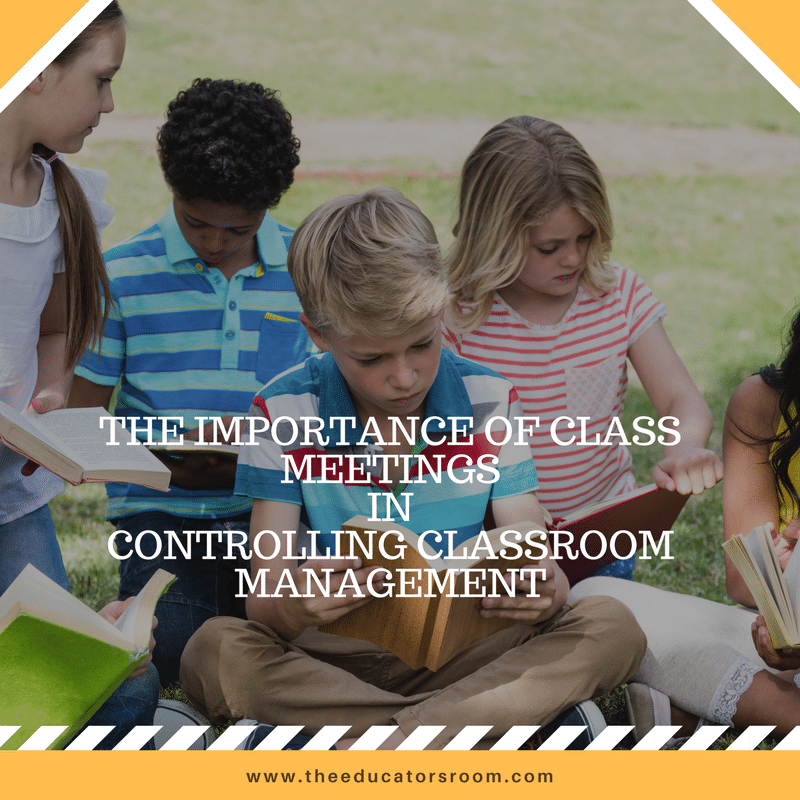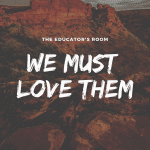When thinking about classroom management, class meetings could be the answer to most of your problems. Just think about it. One of the biggest causes of classroom management issues is that students come in with things on their minds. What are class meetings? Read on to learn how to conduct class meetings and get some ideas on how to run some. These ideas come from a book called Morning Meetings for Special Education Education by Felicia Durden, ED.D. However, morning meetings don’t just have to be for special education.
What are class meetings?
Class meetings are whatever you make them, but are meant to be a time set aside for checking in as a class, reinforcing key educational concepts, and developing social skills. As stated by Durden, the classroom environment is “pivotal in student achievement.” Conducting classroom meetings helps make for a safe, inclusive, orderly, attractive, and comfortable classroom environment.
How do you run a class meeting effectively?
It’s important that you have a format to your class meetings. Creating an orderly routine that is predictable for students is a key component of a class meeting. Make sure that you start, run, and end the class meetings the same way each time. You might begin by having the students each talk about how their mornings went, go into an activity, and then wrap up by addressing any classroom concerns. Having a clipboard where students can register their concerns in order might help ensure this process goes smoothly, so you address each concern in the order in which it is received. This way, it is fairer to the students and you can keep a running record of concerns addressed during the meetings.
Your first morning meeting might address the rules and expectations in the classroom, and Durden suggests the following procedures (all you need is chart paper and a marker):
- Start by asking the kids why rules are important
- Write each kid’s ideas on the chart paper
- Explain that you ‘ll be working on the rules and expectations for morning meeting, being clear that following rules is important for helping the meetings run more smoothly.
- Have a T-chart ready with a picture of an eye and an ear so students can talk about what desired behavior looks and sounds like, but have predetermined rules in mind.
- Talk to the kids about what each rule looks and sounds like and record responses on the T-chart.
- Model the rules. For instance, pay attention looks like you are sitting up and looking at the speaker and sounds like silence. Then have students model behavioral expectations for each rule.
- Reinforce rules daily until students fully understand the expectations.
- Post the rules in a prominent location so they can be referred to.
Durden states that starting off this way will help morning meetings go off without a hitch.
Some things you can do during class meetings
Class meetings don’t have to be boring. There are several things you can do during the meetings to make them fun and interesting.
Community Building
Class meetings can be used as a time for community building. In the early days, this might looks like establishing classroom jobs, setting up a picture schedule for visual learners and kids with autism, celebrating differences, and several other community building activities. One suggested community activity is building teams, for which you’ll need, again, just chart paper and a marker. This activity helps students feel like they are part of the group. Here is the suggested procedure from Durden for this activity:
- Begin by telling students that they are part of the classroom community and team.
- Explain how teams work together to get things done.
- Ask students to share any teams they’ve been a part of. Write any and all examples on the chart.
- Ask students how they think team players act. Write them on the paper, ensuring things, like working together and supporting others, are included.
- Tell students they’ll be coming up with a classroom team name and a class cheer today.
- Have students brainstorm team names and write them on the board. Once a few names are chosen, vote as a class on the team name.
- Next, get students to come up with ideas for an appropriate cheer to represent the class. Have them share their team cheers and vote on the one the class will use. Model appropriate voice tone for the team cheer to prevent it from getting out of hand.
- Each day, use the team cheer to bring the class together.
You might also have games and contests, treasure hunts, skits and drama, and brain breaks as a part of community building.
Social Development Activities
Class meetings can also be used for building social development in students. Helping students understand the importance of listening, asking and answering questions, and eye contact may be a part of your morning meeting. Body language, respect, and character building are also important social skills to review during morning meetings. One activity that I liked from Durden’s book was about complimenting others. This involves creating a bulletin board that will be used to post compliments, giving each student a card, and asking them to write a compliment for a classmate on it. Make sure to add your own compliments as well, and have a time of sharing compliments with the class.
Academic Skills Development
The Morning Meetings book separates strategies for English Language Arts and Social Studies from Science and Math, but there are a plethora of activities to do for each subject area. For example, you might use the time for a read aloud of a story or work on writing letters. You might work on a word wall together or go over “Who, What, When, Why, and Where” with the students. You could work on a “What’s the Weather” activity, sorting activities with shapes, mental math, money activities, and science journals during class meeting time. Several other activities are suggested in Durden’s book, but you get the idea. You can use morning meeting time to go over brief academic mini-lessons that are engaging for the students.
Closing thoughts
You may be skeptical about taking up class time for a meeting with the students, but the fact is that these meetings can prevent many problems in the classroom because you address them before class begins. They can run anywhere from just 15 minutes to 30 minutes. Just set a timer to keep to your time schedule and place things on the meeting agenda on the next class meeting agenda. You’ll find that not only is classroom management easier, but the students in your class will become closer to one another. With these benefits in mind, it’s worth the effort to try class meetings out.






